


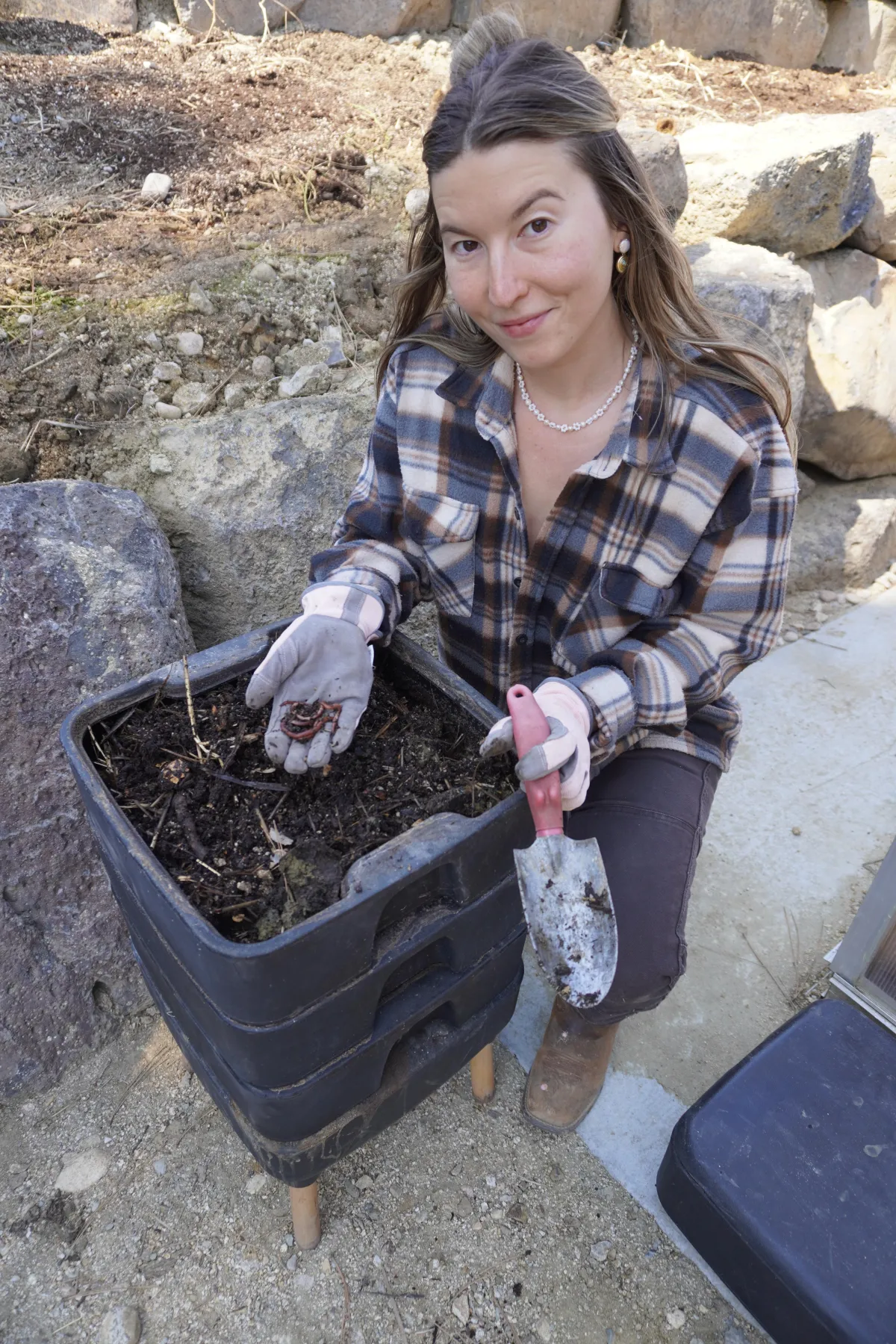
Hey there, I'm Annie!
I’m here to help you cut through the noise and actually figure out chickens, gardening, and homesteading—without the overwhelm, guesswork, or Pinterest perfection pressure.

Midwest girlie
I didn’t grow up on some Pinterest-perfect homestead. I grew up in South Dakota, where real food came from someone you knew and "slow living" wasn’t a trend — it was just life. These days, I live tucked into the Idaho mountains, raising birds, building off-grid systems, and figuring it out as I go. I'm not fancy. I'm just resourceful, stubborn, and not here to be told by the FDA what's "safe."

Green Thumb Guru
If I’m not out wrangling chickens or hauling buckets, I’m probably elbow-deep in the garden. I grow what I eat because I don’t want produce that’s been sprayed, picked before it's ripe, shipped, and stored for weeks. Give me dirt under my nails and heirloom seeds over sterile grocery store shelves any day.

Community Builder
I’m not interested in chasing followers — I’m here to build something real. Whether it’s helping you automate your coop, decode your chicken’s weird behavior, or learn why your towels feel crunchy (hint: it’s your detergent), I create tools and content that actually help. I believe in local connections over internet likes, and if I can help you grow your first garden or raise your first flock, that’s a win in my book.
Why Trust ME
Because I’m not here to sell you a fantasy — I’m living the real thing.
I didn’t grow up doing this. I learned the hard way: one frozen waterer, failed garden, and rogue chicken at a time. I built my homestead from scratch in the Idaho mountains, off-grid and off-script — with a grow room inside and almost 100% chemtrail-proof greenhouse outside (yes, really).
I don’t gatekeep. I share exactly what’s worked for me — from mealworms to meat birds, soil hacks to coop automations — because you deserve more than half-baked advice from someone who’s never actually hatched a chicken.
I’m not a guru, I’m just saying what everyone’s thinking: the system’s broken, and growing your own food is the most radical act of rebellion we’ve got left.
So if you want someone who gets it — someone who’s walked through the overwhelm and figured out how to make this lifestyle doable (and actually fun) — you’re in the right place.
Let’s grow something real.
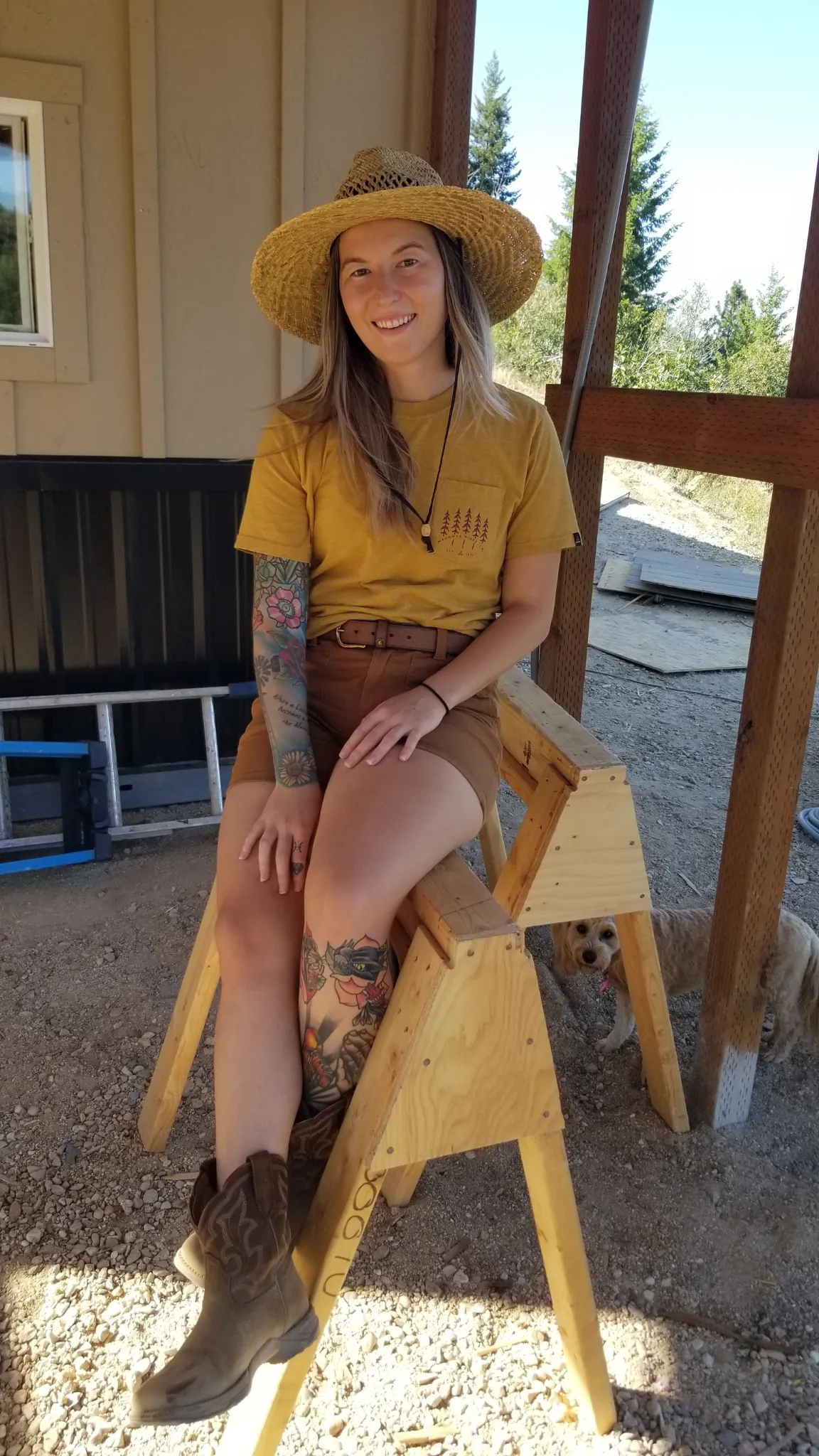
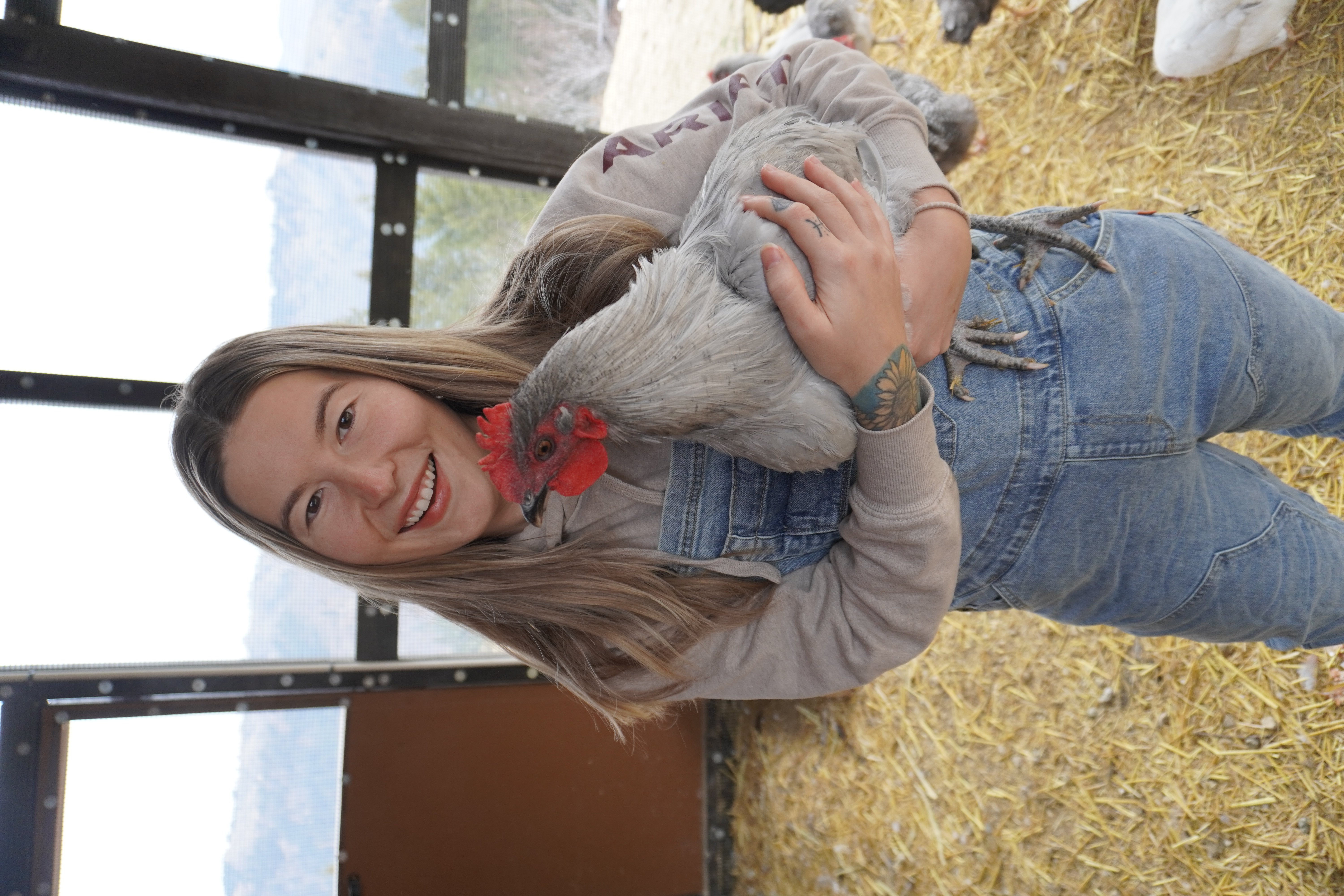
Why choose my course
Because Googling every chicken question at midnight isn’t a strategy.
My "Hatch to Harvest" course is the guide I wish I had when I started — no fluff, no filler, just straight-up answers and hard-earned experience. It's for people who actually want to raise their own meat birds without the overwhelm, confusion, or sugar-coated nonsense.
Inside, you'll get step-by-step instructions for everything from setting up your brooder to harvesting clean, healthy meat — ethically, confidently, and with your sanity intact. Whether you're brand new or just tired of piecing together info from a bunch of random YouTube videos, this course will walk you through it all — start to finish.
You don’t need to be a full-blown farmer to raise your own food. You just need someone who’s done it, messed it up a few times, and figured out what actually works.
I made this for the everyday homesteader who’s ready to do things differently — because raising your own food shouldn’t be complicated. It should be common sense.
What problems can I solve
You’re here because you want real answers from someone who’s lived it — the good, the bad, and the broody.
If you’ve ever felt…
Overwhelmed by chick care and unsure if you're doing it "right"
Confused about coop setup, predator protection, or how to keep things clean
Frustrated with all the conflicting info about raising meat birds ethically
Grossed out by store-bought chicken and ready to take control of your food
Tired of wasting time searching through YouTube videos and Facebook groups
I’ve got you.
I’ll walk you through every part of raising chickens from hatch to harvest with clear, practical steps — no jargon, no guilt-tripping, no fluff. Just real help from someone who’s done it off-grid, on a budget, and without a team of farmhands.
This isn’t about being perfect. It’s about learning, doing, and feeding your family real food with real confidence.
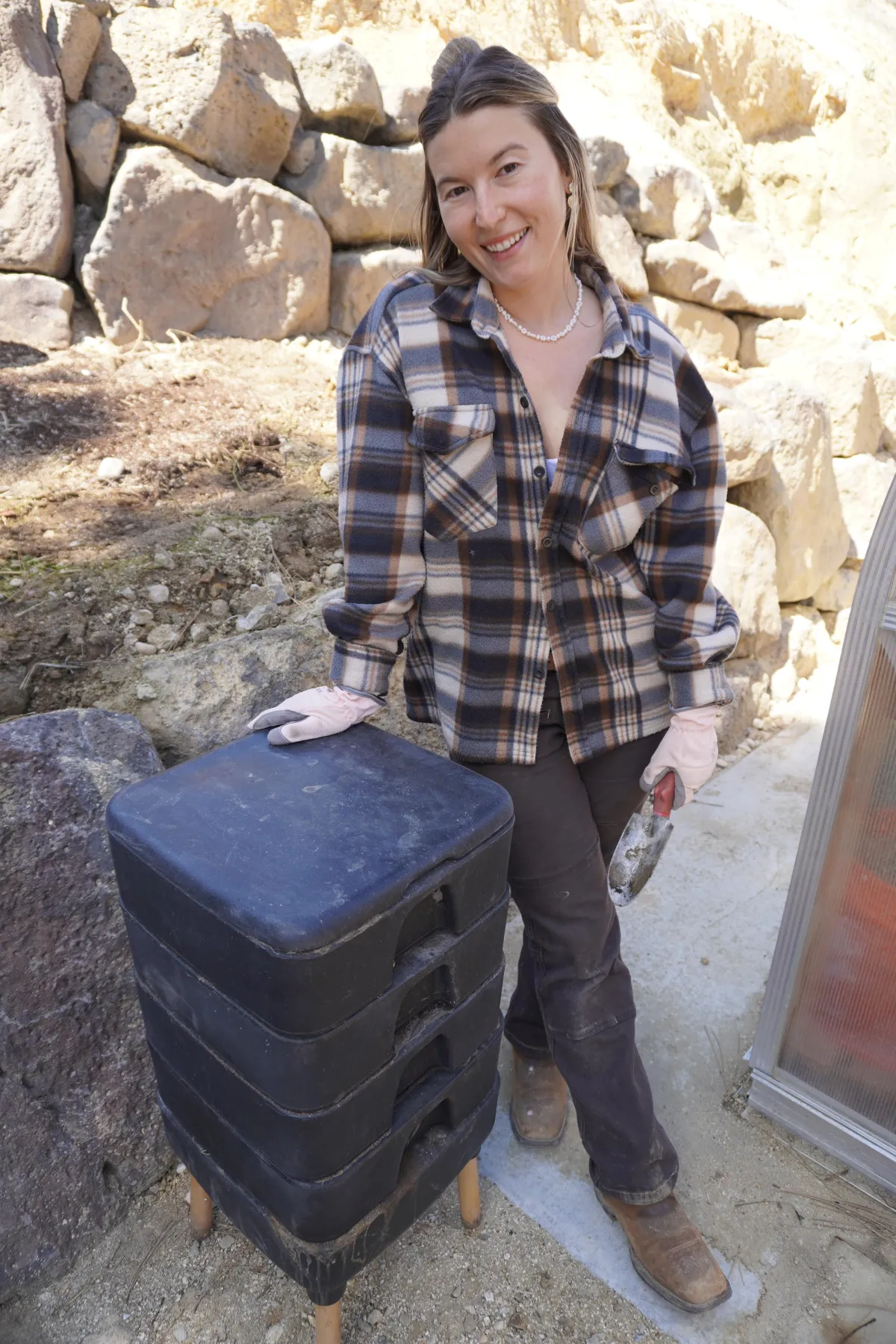
Read The Blog
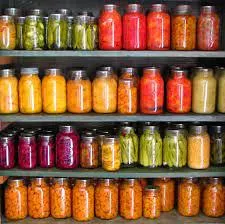
What to Barter (and What to Never Trade) After SHTF
What to Barter (and What to Never Trade) After SHTF
When the grid goes down, supply chains crumble, and the grocery shelves go bare—you’re not buying your way out with dollars. You’re bartering.
But not all barter items are created equal. And some things? You never trade—because your survival depends on it.
This blog walks you through the best barter items to stockpile before the collapse—and the ones to never hand over, no matter how desperate things get.
✅ 12 Best Barter Items When the System Collapses
These are the items people will beg for. Stock them now, keep them sealed and stashed, and only trade from what you’re willing to lose.
1. Alcohol (Even If You Don’t Drink)
Vodka, whiskey, Everclear. Use it to disinfect wounds, calm nerves, clean surfaces, or sanitize gear. Small sealed bottles are perfect for trade. Versatile and in high demand.
2. Fire Starters (Lighters, Matches, Ferro Rods)
No power? No problem… if you can make fire. Keep packs of Bic lighters, waterproof matches, and magnesium rods. They’ll be worth their weight in gold when folks are freezing and haven't learned their bushcraft skills.
3. OTC Meds (Aspirin, Ibuprofen, Allergy Relief)
Think: headaches, fevers, allergic reactions, stomach bugs. These little bottles could save lives when access to healthcare disappears. Keep them sealed and in-date. Even if you don't use these things, a majority of people do and they can be important items.
4. Hygiene Items
Soap, razors, menstrual products, toothpaste, toothbrushes, sponges. Most people don’t prep this stuff—and they’ll regret it. Bartering hygiene items keeps things civil and clean.
5. Tobacco
Even if you don’t smoke, others do. When times are tense, nicotine is currency. Loose leaf, rolling papers, or natural cigarettes are all tradeable and high value.
6. Seeds (Heirloom Only)
Long-term survival = growing food. Hybrid seeds won’t cut it. Heirloom varieties can be saved and replanted—stock them like gold. They’ll become lifelines in a few months.
7. Coffee & Tea
Caffeine withdrawals are real. Whether for comfort, trade, or bribes, you’ll be shocked how fast people will swap essentials for a warm cup of normal.
8. Clean Water Containers
Not everyone will have proper storage. Keep extra water bladders, jugs, or LifeStraws. Bartering clean water access or filters will save lives.
9. Candles & Flashlights
Light = security after dark. Batteries, hand-crank flashlights, solar lanterns, or beeswax candles are all excellent barter materials.
10. Diapers & Baby Wipes
Babies don’t stop needing care when the grid crashes. These items are often overlooked and will be desperately needed.
11. Toilet Paper & Sanitation Supplies
Not glamorous, but trust—people will trade big for the comfort of clean. Add bleach tablets, hand sanitizer, and trash bags to your stash.
12. Tools & Fix-It Gear
Duct tape, zip ties, sewing kits, screwdrivers, knife sharpeners, axe heads. When supply chains break, fixing stuff becomes a barter economy all its own.
❌ What You Should Never Barter After SHTF
Some things are more than valuable—they’re vital to your survival. Do not trade these items unless you’re ready to invite danger to your door.
1. Food
Even if you have a decent stash—don’t let anyone know. Once word spreads that you’ve got food, people will come looking. Starving people don’t barter—they raid. Keep it quiet.
2. Antibiotics or Prescription Meds
Once they’re gone, they’re gone. Save every dose for you and yours. Never trade away medicine. There’s no refill when society collapses.
It's time to strengthen those apothecary skills before it's too late. If you have the skills to make pant medicine, you'll be one step ahead of the crowd.
3. Fuel (Gas, Diesel, Propane)
You think people get crazy about toilet paper? Wait ‘til fuel runs out. Fuel powers heat, vehicles, cooking, and generators. If they know you have it, you’ve painted a target on your back.
4. Firearms & Ammunition
NEVER trade weapons. You might be arming the person who comes back later to take what you’ve got. Protect your base. Don’t empower others to threaten it.
5. Your Location or Resources
Don’t share how much you’ve got, where you live, or what systems you’ve set up (solar, wells, etc). Information is a currency—and can be a threat.
6. Your Ability to Heal
If you’re an herbalist, medic, or someone who knows how to treat illness—barter your knowledge or services, not your entire stash of remedies.
Bonus Rules for Bartering Smart
Trade from your overflow — not your survival stash.
Keep it casual — never reveal your full supply.
Only meet in safe, neutral locations — don’t bring strangers to your homestead.
Never trade in desperation — panic is when people make dangerous decisions.
Document deals when possible — even a written IOU holds power when systems fail.
Barter Wisely, Live Smart
When the grid fails, the real economy starts. And it won’t be stocks or Venmo that save you. It’ll be the extra lighter, the sealed aspirin, the handful of heirloom seeds.
Start stocking now. And remember:
Never trade what keeps you alive.
Annie's Homestead is not affiliated by Facebook™ in any way. Facebook™ is a registered trademark of Facebook™ Inc
Branding and Website by RoyalT Studio

